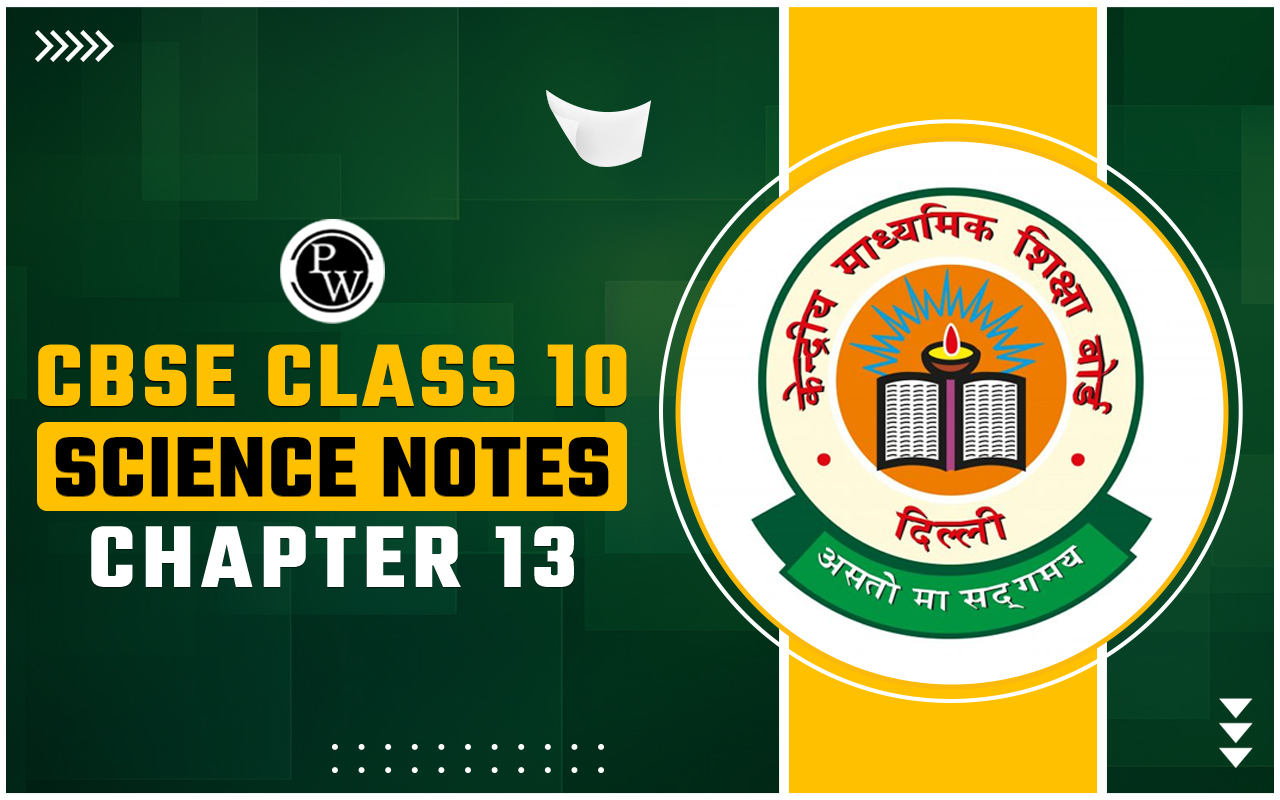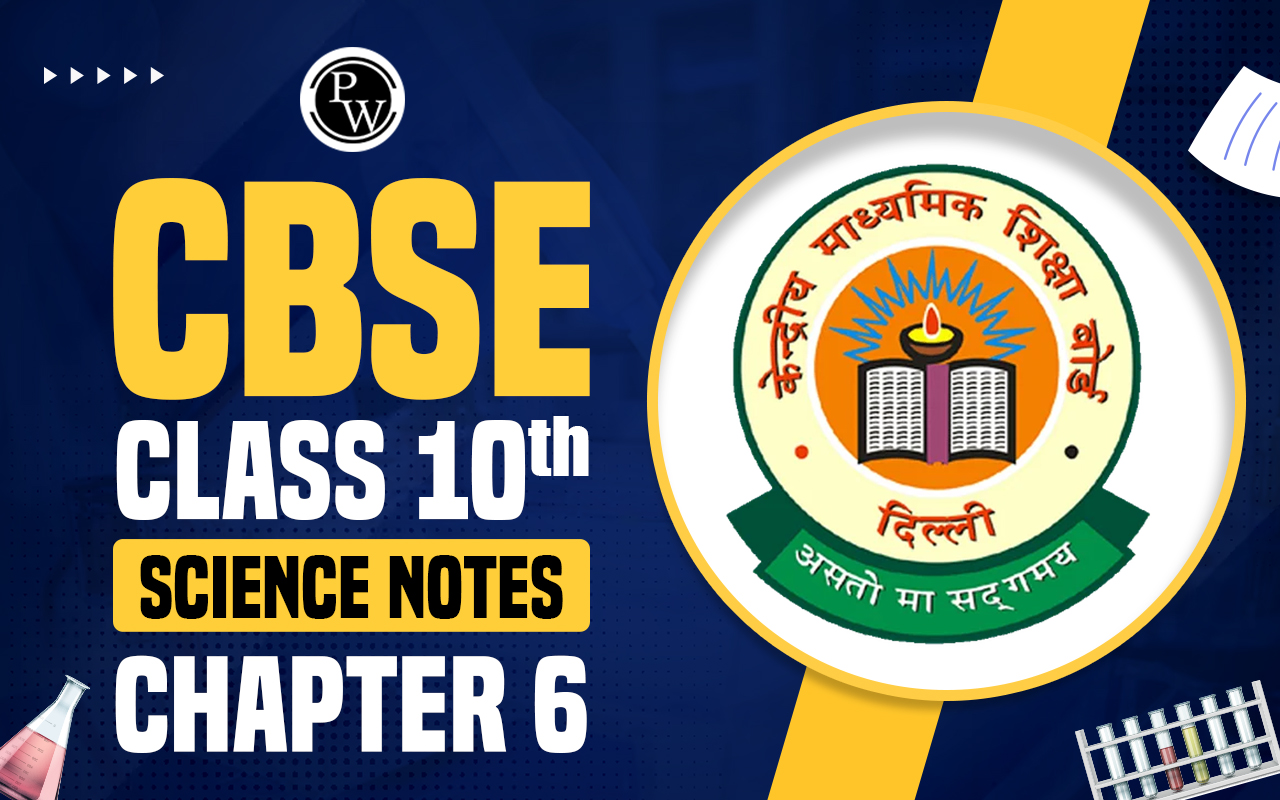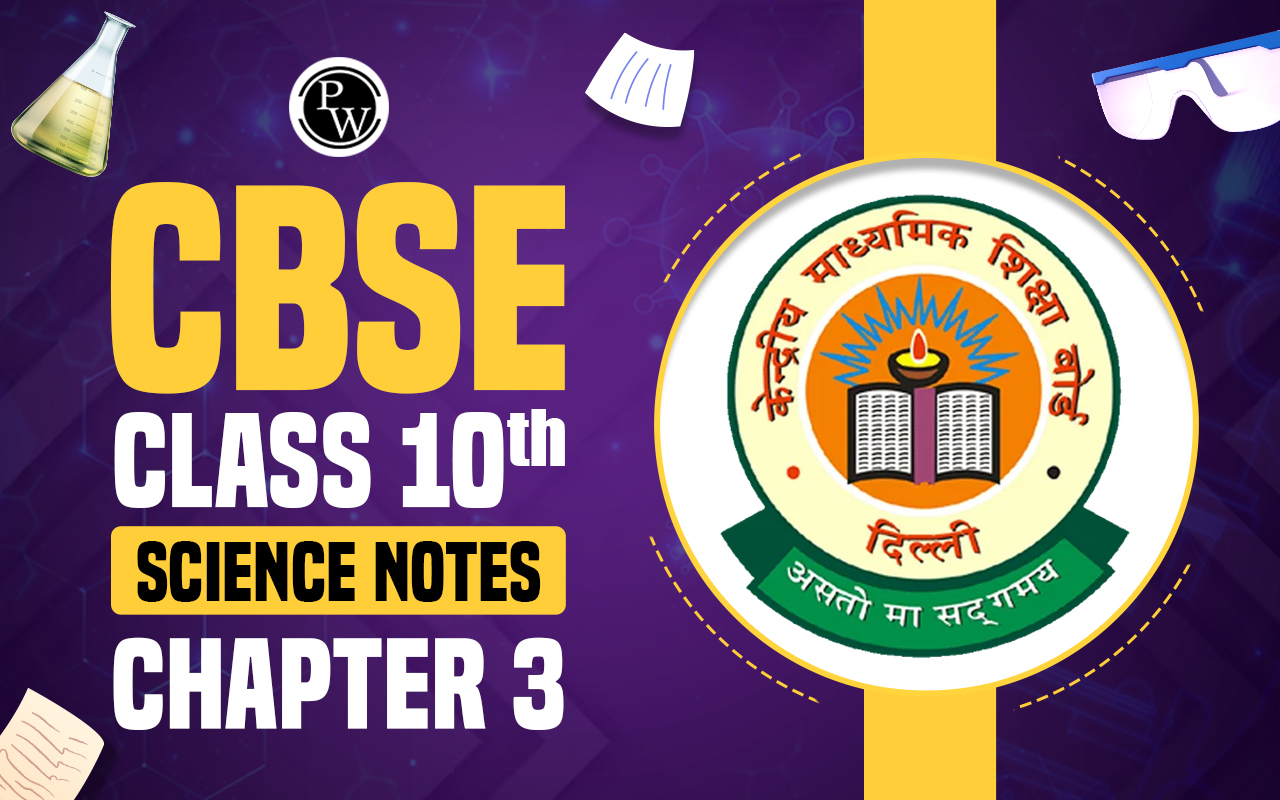
ICSE Class 10 Exam Pattern 2024-25: The ICSE Class 10 Exam Pattern for 2024-25 has been officially released, providing students with crucial information about the structure and marking scheme for the upcoming board exams. The exam will consist of both theory and internal assessments, with a total of six subjects divided into three groups. Group I includes four compulsory subjects, Group II offers two optional subjects, and Group III consists of one optional subject.
The theory exams for most subjects will be of 80 marks, while the internal assessment will contribute 20 marks. The exam will feature multiple-choice, short-answer, and long-answer questions, with a focus on analytical and application-based questions, in line with the NEP 2020 guidelines. This detailed pattern allows students to plan their preparation effectively and understand the weightage of each section.ICSE Class 10 Exam Pattern 2024-25 Overview
The ICSE Class 10 Exam Pattern for 2024-25 has been outlined to provide students with a clear understanding of the structure and assessment criteria for their board exams. Below are the overview of the ICSE 10th Exam Pattern:| Aspect | Details |
|---|---|
| Exam Mode | Offline (Pen and Paper) |
| Medium of Instruction | Hindi & English |
| Duration | 2 Hours per subject |
| Type of Questions | Multiple Choice, Long/Short Answer Questions |
| Total Subjects | 6 |
| Group I | 4 Compulsory Subjects |
| Group II | 2 Optional Subjects |
| Group III | 1 Optional Subject |
| Total Marks | 100 |
| Negative Marking | No |
| Theory Exam Marks | Group I & II : 80 Marks
Group III : 50 Marks |
| Internal Assessment Marks | Group I & II : 20 Marks
Group III : 50 Marks |
| Passing Marks | 33% Aggregate in Each Subject & Overall |
ICSE 10th Exam Pattern 2024-25 Subject Wise
The ICSE Class 10 Exam Pattern 2024-25 is divided into three groups: Group I , Group II , and Group III , each with specific subjects and assessment structures. Below is a detailed breakdown of the subject-wise exam pattern for each group:Group I: Compulsory Subjects
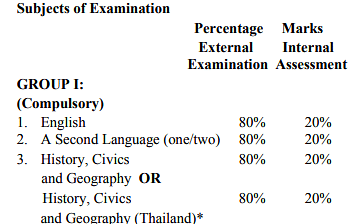
| Subject | Types of Questions | Weightage |
|---|---|---|
| English | Language skills and literature skills | 80 (external) + 20 (internal) |
| History & Civics | Short and long-answer type questions | 80 (external) + 20 (internal) |
| Geography | Short and long-answer type, map questions | 80 (external) + 20 (internal) |
| Second Language | Language skills and literature skills | 80 (external) + 20 (internal) |
Group II: Optional Subjects (Choose Any Two)
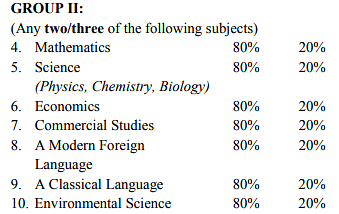
| Subject | Types of Questions | Weightage |
|---|---|---|
| Mathematics | 2 Sections: Section A (short answer), Section B (long answer) | 80 (external) + 20 (internal) |
| Science (Physics, Chemistry, Biology) | 2 Sections: Section A (short answer), Section B (long answer) | 80 (external) + 20 (internal) |
| Commercial Studies | 2 Sections: Section A (short answer), Section B (long answer) | 80 (external) + 20 (internal) |
| Environmental Science | 2 Sections: Section A (short answer), Section B (long answer) | 80 (external) + 20 (internal) |
| Economics | 2 Sections: Section A (short answer), Section B (long answer) | 80 (external) + 20 (internal) |
| Classical Language | Questions based on translation & grammar | 80 (external) + 20 (internal) |
| Modern Foreign Language | 5 questions, all compulsory, translation & grammar | 80 (external) + 20 (internal) |
Group III: Optional Subjects (Choose One)
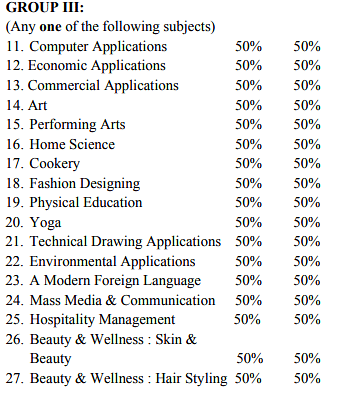
| Subject | Types of Questions | Weightage |
|---|---|---|
| Performing Arts | Section A – Vocal Music, Section B – Instrumental Music, Section C – Tabla | 50 (external) + 50 (internal) |
| Home Science | Short and long-answer questions | 50 (external) + 50 (internal) |
| Physical Education | Short and long-answer questions | 50 (external) + 50 (internal) |
| Art | Short and long-answer questions | 50 (external) + 50 (internal) |
| Cookery | Short and long-answer questions | 50 (external) + 50 (internal) |
| Yoga | Section A – All compulsory (40 marks), Sections B, C, D – Any two (20 marks each) | 50 (external) + 50 (internal) |
| Technical Drawing Applications | Short and long-answer questions | 50 (external) + 50 (internal) |
| Environmental Applications | Short and long-answer questions | 50 (external) + 50 (internal) |
| Computer Applications | Short and long-answer questions | 50 (external) + 50 (internal) |
ICSE 10th Exam Pattern 2024-25 - Marking Scheme
The ICSE 10th Exam Pattern 2024-25 follows a specific marking scheme to ensure a structured and fair evaluation of students. Understanding this marking scheme is essential for students to plan their exam strategy effectively. Below are the key points related to the marking scheme for the ICSE Class 10 exams:Key Highlights of the Marking Scheme:
Total Marks per Subject : Each subject will carry a total of 100 marks , consisting of both the theory exam and internal assessments.
Minimum Passing Marks : Students need to secure at least 33% aggregate marks in each subject to pass the exam. This includes both theory and internal assessment marks.
Compulsory Subjects : To be considered a pass, students must pass in at least 5 subjects , including English .
Allocation of Marks per Question : The marks for each question will be clearly allotted, and students must answer questions according to the marks assigned. For example:
- 1-mark questions should be answered concisely.
- 5-mark questions require more detailed and well-explained responses.
No Negative Marking : There is no negative marking for incorrect answers in the ICSE 10th exam, so students are encouraged to attempt all questions to maximize their chances of scoring.
ICSE Class 10 Exam Pattern 2024-25 Internal Assessment (20% Weightage)
The internal assessment forms a significant portion of the overall evaluation. Here are the details about the internal assessment for ICSE Class 10:Weightage : The internal assessment will account for 20% of the total marks in each subject.
Conducted in Schools : Internal assessments are conducted in the respective schools and include various forms of evaluation, such as:
- Projects
- Multiple assessments
- Portfolios
Contribution to Final Marks : The marks earned in internal assessments will be added to the final exam score, contributing to the overall marks.
Components of Internal Assessment :
- Projects: Tasks given during the academic year to test practical application.
- Assessments: Periodic tests and assignments that reflect a student’s understanding.
- Portfolios: A collection of work that shows the student’s progress and achievements throughout the year.
ICSE 10th Grading System 2024-25
The ICSE 10th Grading System 2024-25 will be used to evaluate students' performance in both internal assessments and external exams . The results will be provided in the form of both marks and grades , with grades offering a clear reflection of a student’s academic achievement. Below is a detailed overview of the grading system:ICSE 10th Grading System for Internal Exams
| Grade | Remarks |
|---|---|
| A | Very Good |
| B | Good |
| C | Satisfactory |
| D | Fail |
| E | Fail |
- Grade A : Excellent performance in internal assessments.
- Grade B : Good performance, meeting expectations.
- Grade C : Satisfactory performance, but with room for improvement.
- Grade D : Indicates failure in the internal assessments.
- Grade E : Represents failure in the internal assessments, requiring significant improvement.
ICSE 10th Grading System for External Exams
| Grade | Remarks |
|---|---|
| 1, 2 | Very Good |
| 3, 4, 5 | Credit |
| 6, 7 | Pass |
| 8, 9 | Fail |
- Grade 1-2 : Outstanding performance, well above average.
- Grade 3-5 : Credit, indicating an above-average performance.
- Grade 6-7 : Pass, meeting the minimum passing requirements.
- Grade 8-9 : Fail, indicating the student did not meet the minimum passing criteria.
ICSE Class 10 Passing Marks 2025
The ICSE Class 10 passing criteria are divided into different groups (Group I, Group II, and Group III), and each subject has its specific internal and external exam weightage. Students must score a minimum of 33% overall, including both theory and internal assessments, to pass each subject. Here’s a breakdown of the passing marks for each subject:Group I - Compulsory Subjects
| Subject | Internal Assessment | External Exam | ICSE Passing Marks |
|---|---|---|---|
| History, Civics, and Geography | 20% | 80% | 35% |
| English | 20% | 80% | 35% |
| Second Language | 20% | 80% | 35% |
Group II - Optional Subjects (Any 2 or 3 Subjects)
| Subject | Internal Assessment | External Exam | ICSE Passing Marks |
|---|---|---|---|
| Economics | 20% | 80% | 35% |
| Mathematics | 20% | 80% | 35% |
| Physics, Chemistry, Biology | 20% | 80% | 35% |
| Commercial Studies | 20% | 80% | 35% |
| Environmental Science | 20% | 80% | 35% |
| Modern Foreign Language | 20% | 80% | 35% |
| Classical Language | 20% | 80% | 35% |
Aggregate ICSE Passing Marks : 33% in each subject and overall.
Group III - Optional Subjects (Any 1 Subject)
| Subject | External Exam | Internal Exam | ICSE Passing Marks |
|---|---|---|---|
| Commercial Applications | 50% | 50% | 35% |
| Computer Applications | 50% | 50% | 35% |
| Economic Applications | 50% | 50% | 35% |
| Performing Arts | 50% | 50% | 35% |
| Art | 50% | 50% | 35% |
| Home Science | 50% | 50% | 35% |
| Yoga | 50% | 50% | 35% |
| Fashion Designing | 50% | 50% | 35% |
| Physical Education | 50% | 50% | 35% |
| Cookery | 50% | 50% | 35% |
| Technical Drawing Applications | 50% | 50% | 35% |
| Environmental Applications | 50% | 50% | 35% |
| A Modern Foreign Language | 50% | 50% | 35% |
ICSE 10th Exam Pattern 2024-25: Preparation Tips
As the ICSE Class 10 exams for 2025 approach, it’s important for students to plan their preparation effectively to perform well. Here are some crucial tips to help you get ready:1. Know Your Syllabus
Understanding the complete ICSE Class 10 syllabus is the first step in your preparation. Make sure you're aware of the units and chapters that are included in each subject. Once you know the syllabus, set clear targets for each subject, and prioritize based on the weightage of each chapter. Avoid starting with lengthy or less-weighted chapters; instead, tackle the high-weightage chapters first.2. Plan a Study Schedule and Stick to It
Creating a structured study schedule is key. Allocate enough time for all subjects, and if some topics are more difficult, plan additional time for those areas. Break your study sessions into smaller, manageable periods instead of studying for long hours. This will help you stay focused and avoid burnout. Consistency in following the schedule is vital for staying on track.3. Include Breaks for Relaxation
Studying for extended periods without breaks can lead to monotony and mental fatigue. Taking regular breaks between study sessions helps refresh your mind and increases your ability to retain information. Use these breaks to relax or engage in a brief physical activity to boost concentration.4. Solve Previous Year’s Papers and ICSE 10th Specimen Papers 2025
Simply completing the syllabus is not enough for effective preparation. To get a better understanding of the exam pattern, it is crucial to solve previous years' question papers and ICSE 10th specimen papers 2025 . This will help you get familiar with the types of questions asked, the marking scheme, and the difficulty level of the exam. Practicing papers under timed conditions will also help improve your time management skills.5. Revision is the Key to Success
Revision plays an important role in reinforcing the concepts you've learned. After completing each chapter or topic, take time to revise it. This will help transfer information from working memory to long-term memory , making it easier to recall during the exam. Make sure to revise regularly and not just at the last moment.
ICSE Class 10 Exam Pattern 2024-25
What types of questions can I expect in the ICSE Class 10 exams?
How is the internal assessment scored?
What are the passing marks for ICSE Class 10?
What is the weightage of internal assessments in the ICSE Class 10 exam?

